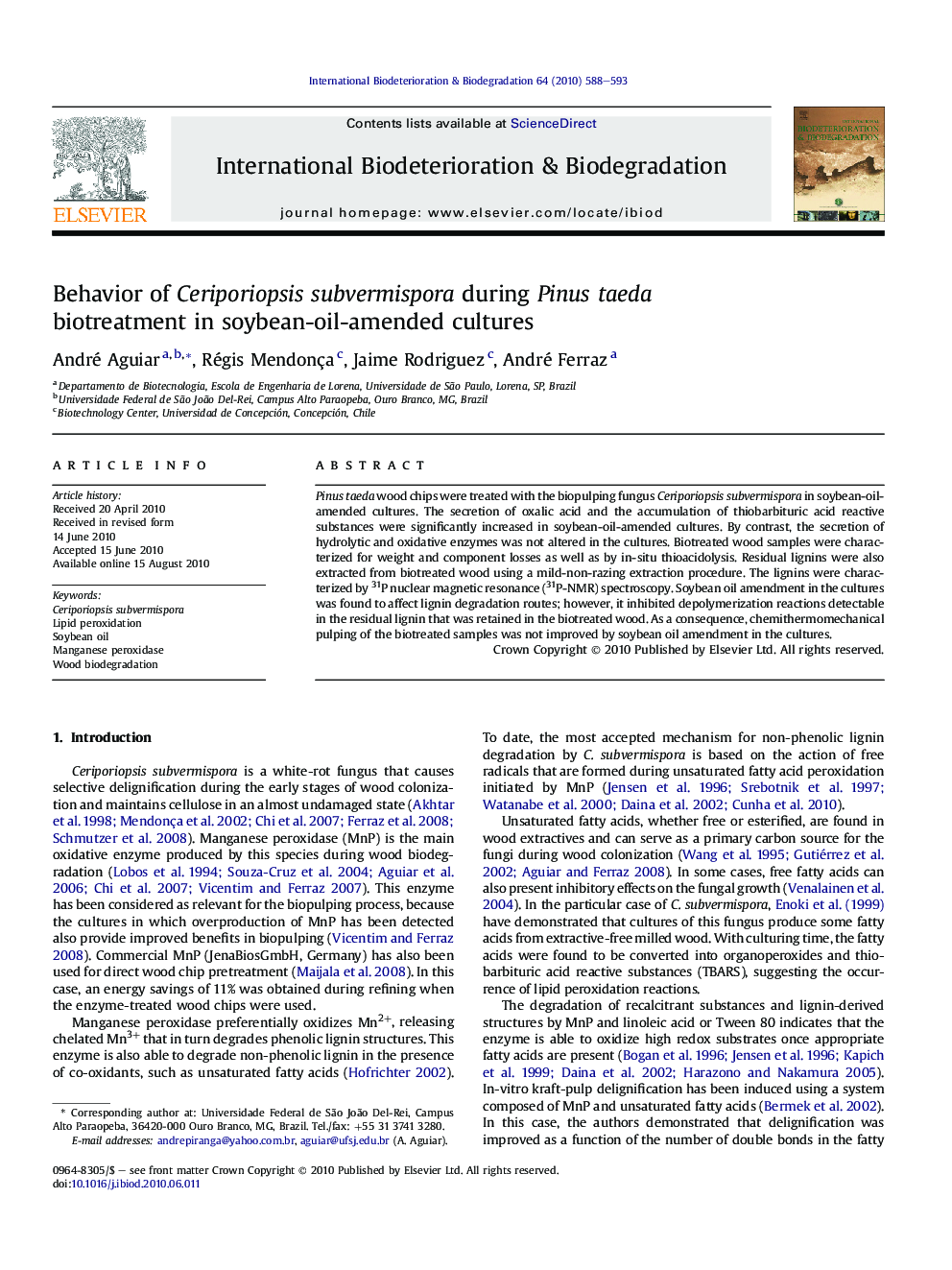| Article ID | Journal | Published Year | Pages | File Type |
|---|---|---|---|---|
| 4365585 | International Biodeterioration & Biodegradation | 2010 | 6 Pages |
Pinus taeda wood chips were treated with the biopulping fungus Ceriporiopsis subvermispora in soybean-oil-amended cultures. The secretion of oxalic acid and the accumulation of thiobarbituric acid reactive substances were significantly increased in soybean-oil-amended cultures. By contrast, the secretion of hydrolytic and oxidative enzymes was not altered in the cultures. Biotreated wood samples were characterized for weight and component losses as well as by in-situ thioacidolysis. Residual lignins were also extracted from biotreated wood using a mild-non-razing extraction procedure. The lignins were characterized by 31P nuclear magnetic resonance (31P-NMR) spectroscopy. Soybean oil amendment in the cultures was found to affect lignin degradation routes; however, it inhibited depolymerization reactions detectable in the residual lignin that was retained in the biotreated wood. As a consequence, chemithermomechanical pulping of the biotreated samples was not improved by soybean oil amendment in the cultures.
